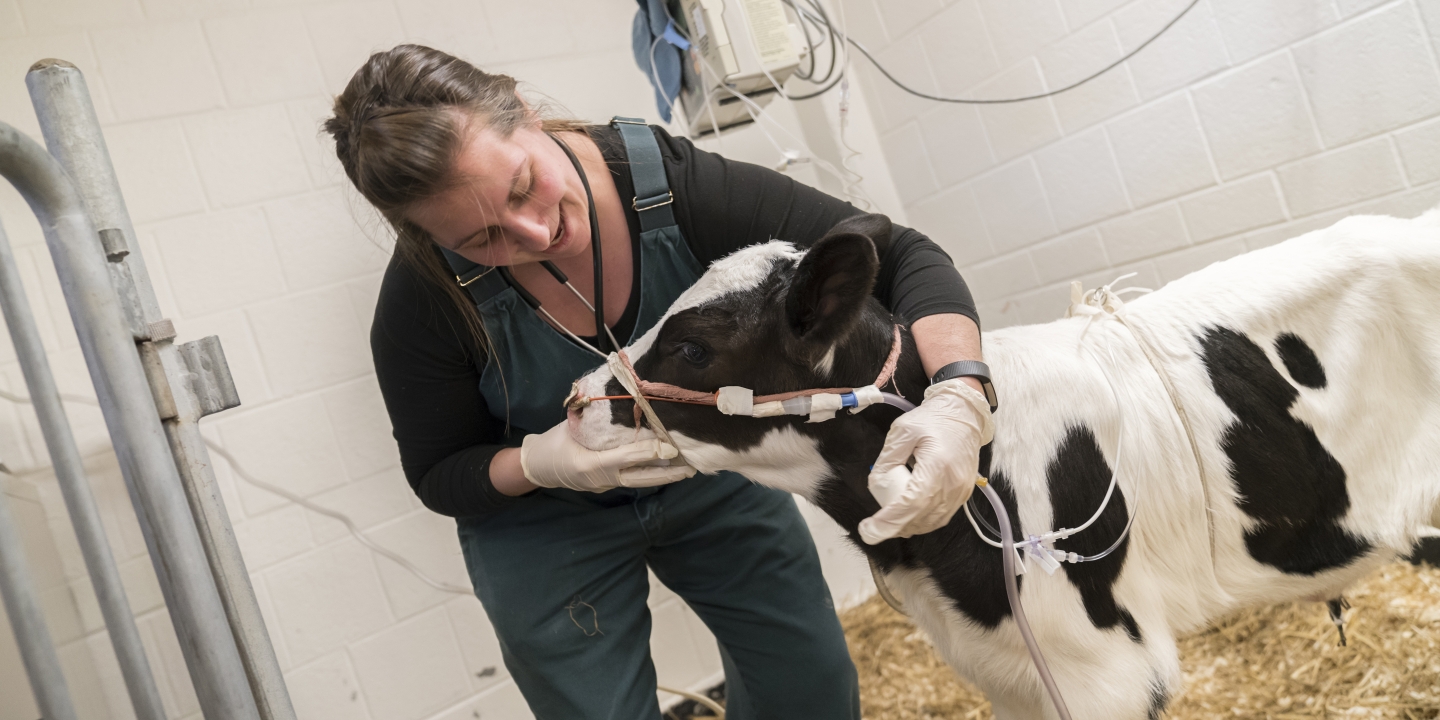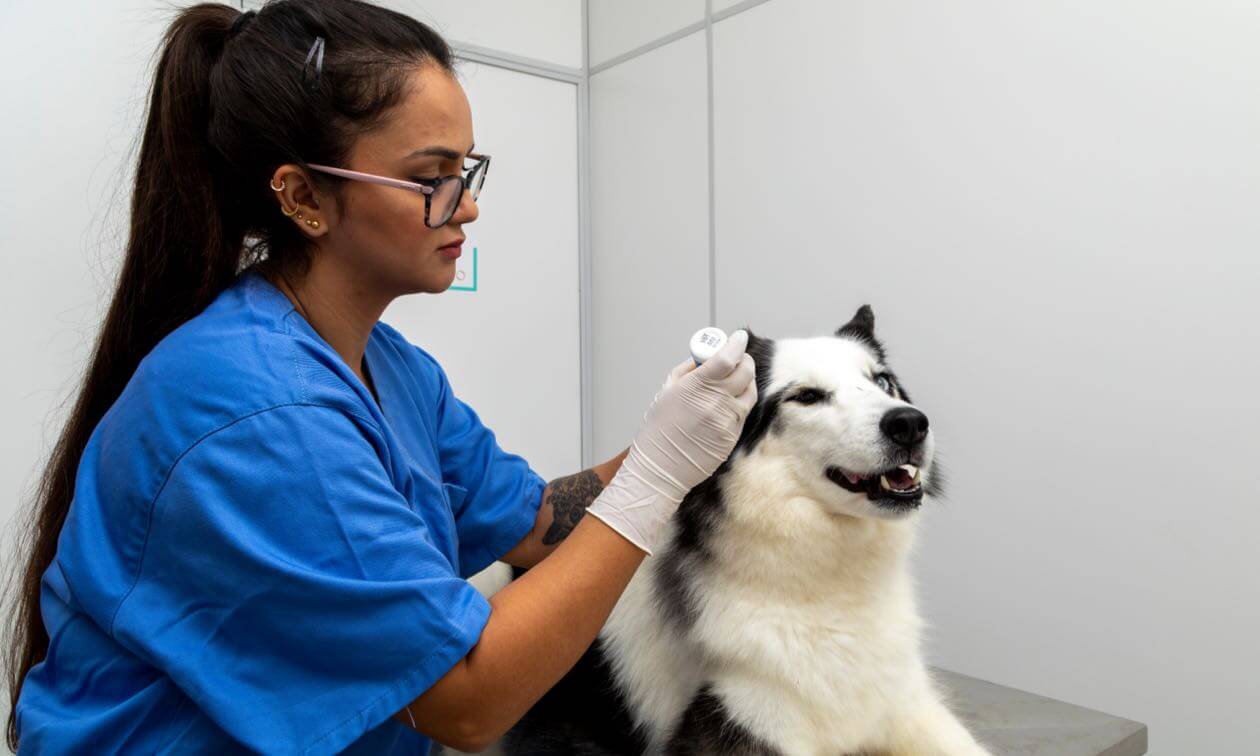Things to know before consulting a Board Certified Veterinary Oncologist
Wiki Article
Comprehensive Guide to the Solutions Supplied by a Veterinary Oncologist
Vet oncology includes a wide selection of services intended at treating and detecting cancer in pet dogs. Veterinary Cancer Specialist. Oncologists employ innovative diagnostic strategies and offer different treatment choices customized to each pet's needs. They likewise focus on supportive care and give important sources for pet owners. Recognizing these services is vital for making educated decisions. What certain facets of veterinary oncology can significantly influence a pet dog's treatment trip?Recognizing Veterinary Oncology
Veterinary oncology is a specific area focused on dealing with and diagnosing cancer in animals. This technique incorporates a vast array of strategies, from clinical therapies such as chemotherapy and immunotherapy to surgical interventions targeted at eliminating lumps. Veterinary oncologists are educated to identify the one-of-a-kind manifestations of cancer in various types, enabling them to tailor therapy strategies to individual patients.Along with conventional treatments, veterinary oncology emphasizes helpful care, which plays a crucial duty in boosting the top quality of life for damaged pets. This consists of discomfort monitoring, dietary assistance, and palliative treatment options. Partnership with animal proprietors is important, as they are indispensable to decision-making concerning their family pets' therapy paths. As research study developments, veterinary oncology remains to develop, providing new hope and boosted end results for pet dogs detected with cancer cells. Generally, this field is fundamental for addressing the intricacies of cancer cells in friend pets.
Advanced Diagnostic Techniques
Advanced diagnostic techniques play an essential duty in veterinary oncology, offering crucial insights right into the existence and extent of cancer cells in animals. Imaging modalities such as ultrasound, CT scans, and MRI are typically used to picture tumors and assess their features. Furthermore, biopsy procedures are very important for getting tissue examples, enabling for definitive medical diagnosis and tailored therapy plans.Imaging Modalities Utilized
Imaging modalities play a necessary role in the medical diagnosis and administration of cancer in pets. Veterinary oncologists use various sophisticated imaging techniques to assess lump size, transition, and existence. Radiography, or X-rays, offers an initial sight of bone and chest problems, while ultrasound provides real-time imaging of soft tissues, permitting thorough examination of inner organs. Calculated tomography (CT) boosts visualization of intricate anatomical structures and makes it possible for 3D reconstructions, helping in specific tumor localization. Magnetic resonance imaging (MRI) is invaluable for soft cells distinction, particularly in brain lumps. Additionally, nuclear medicine methods such as positron exhaust tomography (PET) help determine metabolic task within lumps. Jointly, these modalities enhance diagnostic accuracy, assisting reliable therapy strategies for oncological clients.Biopsy Procedures Described
Adhering to the first analysis via imaging modalities, obtaining a definitive diagnosis typically needs tissue sampling with biopsy procedures. Veterinary oncologists utilize different biopsy techniques based on the tumor's location and characteristics. Fine needle aspiration (FNA) is a minimally intrusive approach that removes cells for cytological examination, ideal for superficial masses. Core needle biopsies provide bigger cells examples and work for deeper growths, enabling for histopathological analysis. Surgical biopsies involve excising a section or the whole tumor, facilitating complete assessment. These treatments not only confirm the presence of cancer cells yet additionally aid identify its type and grade, leading therapy decisions. Each biopsy approach is selected carefully to stabilize diagnostic accuracy with patient safety and security and comfort.Treatment Alternatives for Cancer in Pet dogs
When an animal is detected with cancer cells, a variety of therapy options come to be available to aid boost and manage the condition quality of life. Vet oncologists typically advise a multidisciplinary approach tailored to the specific pet's requirements, which might include surgical procedure, radiation therapy, immunotherapy, or different therapies.Surgical treatment is usually employed to eliminate lumps and affected tissues, possibly leading to complete remission in some instances. Radiation treatment aims to target and ruin cancer cells, reducing growth dimension and alleviating symptoms - Veterinary Oncologist. Immunotherapy uses the animal's immune system to eliminate cancer cells better, while alternate therapies could consist of acupuncture or herbal supplements to support overall health
Each treatment option brings its very own advantages and dangers, and vet oncologists work carefully with family pet proprietors to make a comprehensive plan that lines up with the animal's particular diagnosis and the owner's wishes. The supreme goal is to enhance the pet's comfort and quality of life throughout their cancer cells trip.
Radiation treatment for Pets
Radiation treatment is a typical treatment option for animals diagnosed with cancer cells and is usually used along with other therapies outlined by veterinary oncologists. This treatment involves the management of certain medications developed to destroy and target cancer cells, thereby reducing lump dimension and stopping the spread of the disease. Vet oncologists customize chemotherapy protocols based upon the sort of cancer, the pet dog's general health, and the wanted therapy result.Negative effects can take place, as these medications may likewise affect healthy and balanced cells. Usual reactions consist of queasiness, vomiting, and momentary modifications in cravings - Veterinary Oncologist. Vet oncologists are geared up to take care of these side impacts effectively, making certain the animal's convenience throughout the therapy procedure. Regular surveillance via blood tests and follow-up consultations is vital to assess the pet dog's reaction to chemotherapy and make essential adjustments. Eventually, radiation treatment can offer substantial benefits, improving click here now the quality of life for family pets encountering cancer web link medical diagnoses

Radiation Therapy in Veterinary Medication
Radiation therapy functions as an efficient treatment alternative for family pets diagnosed with local growths, offering a targeted technique to cancer monitoring. This method utilizes high-energy radiation to harm the DNA of cancer cells, inhibiting their capacity to proliferate. It is specifically useful for tumors that are not open to surgical elimination or for cases where surgical procedure may not be practical due to the growth's location.Vet oncologists tailor radiation procedures based upon tumor kind, size, and place, in addition to the pet dog's overall wellness. Treatment can be provided using external beam of light radiation or brachytherapy, each with distinctive benefits. Normally, multiple sessions are required to take full advantage of performance while lessening side effects.
Although family pets might experience temporary reactions such as skin inflammation, the total purpose is to reduce tumors and ease signs and symptoms, ultimately improving the animal's prognosis and high quality of life. Accordingly, radiation therapy plays a necessary duty in thorough cancer care.
Palliative Treatment and Top Quality of Life
Palliative treatment in vet oncology concentrates on boosting the lifestyle for pets dealing with incurable ailments, making certain comfort and self-respect in their final days. This specific technique focuses on discomfort monitoring, signs and symptom control, and emotional support. Veterinary oncologists analyze each pet dog's specific demands, customizing interventions to minimize discomfort and boost total wellness.Techniques may consist of providing medicines for pain alleviation, handling nausea, and addressing various other traumatic signs. Additionally, dietary support is typically provided to maintain strength and improve appetite. The psychological element of palliative care is similarly essential; developing a calm atmosphere helps in reducing stress and anxiety for both pet and proprietor.
Ultimately, the objective of palliative treatment is to permit pets to appreciate their staying time with as much delight and self-respect as possible. By concentrating on comfort and top quality of life, veterinary oncologists play an essential duty in making sure that pets and their households browse this difficult trip with compassion and understanding.
Assistance for Pet Owners Throughout Treatment

Psychological Assistance for Proprietors
Charting the emotional landscape throughout a pet dog's cancer therapy can be an overwhelming experience for proprietors. The unpredictability surrounding medical diagnosis and prognosis can bring about feelings of helplessness, unhappiness, and anxiousness. Veterinary oncologists acknowledge the relevance of emotional assistance and frequently supply assistance to aid proprietors navigate this visit this website challenging trip. Interaction is important; talking about therapy alternatives and potential outcomes can ease some anxieties. Additionally, supplying peace of mind that psychological responses stand fosters a helpful setting. Several oncology clinics may also suggest support groups or counseling services tailored for animal owners, promoting common experiences. Motivating proprietors to focus on self-care throughout this time around is crucial, as their psychological health straight affects their pet's comfort and overall treatment experience.
Resources and Educational Materials
Steering via the intricacies of a family pet's cancer cells therapy can be daunting for owners, making accessibility to instructional materials and dependable sources essential. Veterinary oncologists typically offer an array of handouts, sales brochures, and online products that discuss treatment alternatives, prospective adverse effects, and treatment techniques. These sources aid debunk the process and encourage pet dog owners to make informed choices. Furthermore, many oncology centers offer accessibility to support discussion forums and teams where proprietors can attach with others encountering similar obstacles, fostering a feeling of community. Educational workshops and webinars conducted by vet professionals additionally enhance understanding, making sure that proprietors are fully equipped to browse their pet's trip through cancer therapy with confidence and understanding.Regularly Asked Questions
Exactly How Can I Prepare My Animal for a Vet Oncology Go To?
Preparing a pet dog for a vet oncology go to entails celebration medical records, keeping in mind symptoms, and making sure the pet dog is comfortable. A calm temperament and familiar items can assist reduce anxiety during the visit.What Are the Indicators My Pet Dog May Have Cancer?
Signs that an animal may have cancer cells consist of unexplained fat burning, persistent throwing up or looseness of the bowels, uncommon swellings or swellings, lethargy, adjustments in appetite, difficulty breathing, and alterations in behavior. Prompt veterinary attention is vital.Exactly How Can I Assistance My Pet Dog Psychologically Throughout Therapy?
Sustaining a pet dog psychologically throughout therapy entails giving convenience, keeping regimens, using mild affection, and guaranteeing a calm environment. Taking part in quiet play and regular friendship aids relieve stress and anxiety and cultivates a feeling of safety and security.Are There Alternate Therapies for Pets With Cancer cells?
Alternate therapies for pets with cancer cells consist of acupuncture, herbal therapies, and dietary support. These strategies may enhance traditional treatments, promoting total well-being. Consulting with a vet is crucial for effective and secure assimilation of alternate treatments.What Expenses Should I Anticipate for Vet Oncology Services?
The awaited expenses for veterinary oncology solutions can vary substantially, commonly influenced by diagnostics, therapies, and continuous treatment. Animal owners need to get ready for expenditures ranging from consultations to specialized treatments, reflecting the intricacy of cancer cells administration.Collaboration with family pet proprietors is important, as they are integral to decision-making regarding their pet dogs' treatment courses. Each treatment choice lugs its own advantages and risks, and veterinary oncologists function closely with family pet proprietors to create an extensive plan that lines up with the pet dog's particular medical diagnosis and the proprietor's wishes. Family pets might experience short-lived reactions such as skin irritability, the overall goal is to reduce tumors and minimize signs and symptoms, inevitably improving the family pet's diagnosis and quality of life. Support for animal proprietors throughout treatment is essential in steering through the emotional difficulties linked with a pet's cancer diagnosis. Preparing an animal for a vet oncology go to includes celebration clinical documents, keeping in mind signs and symptoms, and ensuring the pet is comfortable.
Report this wiki page